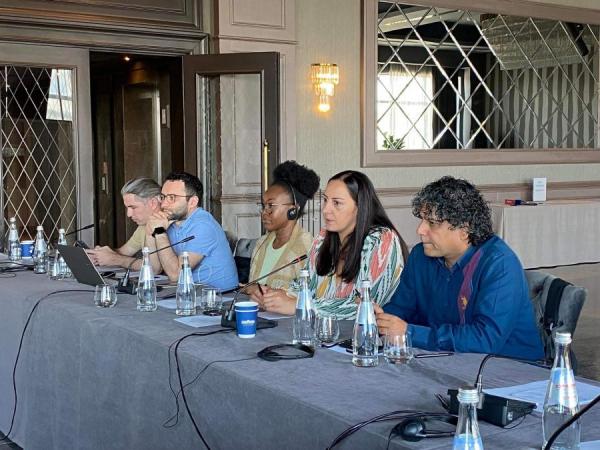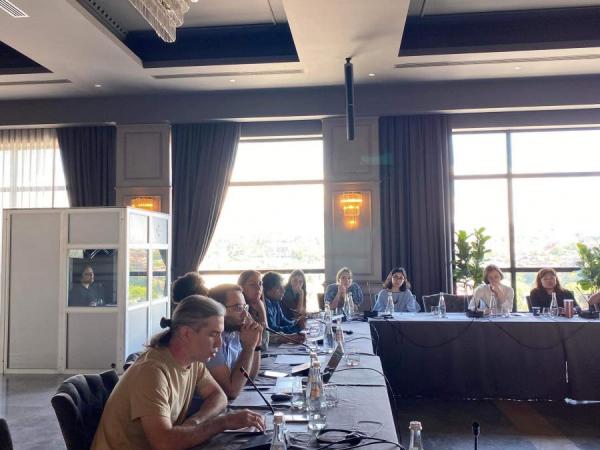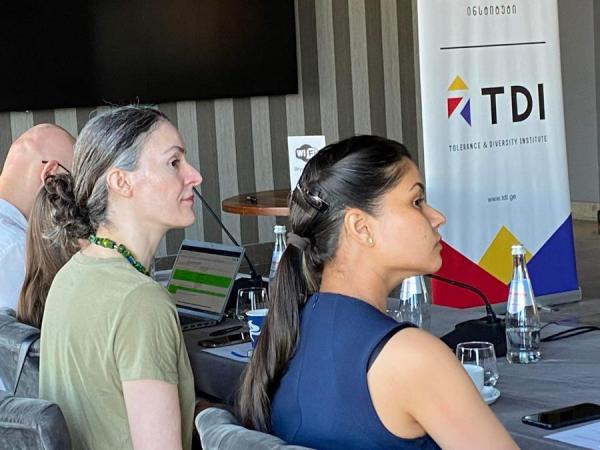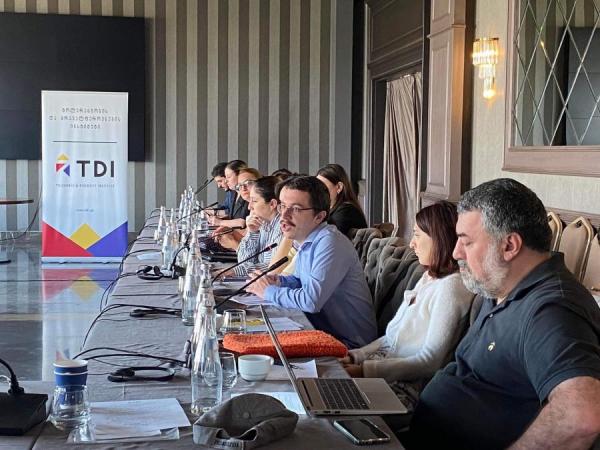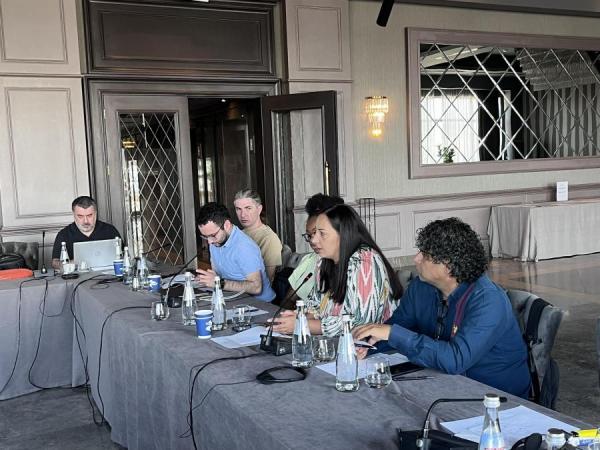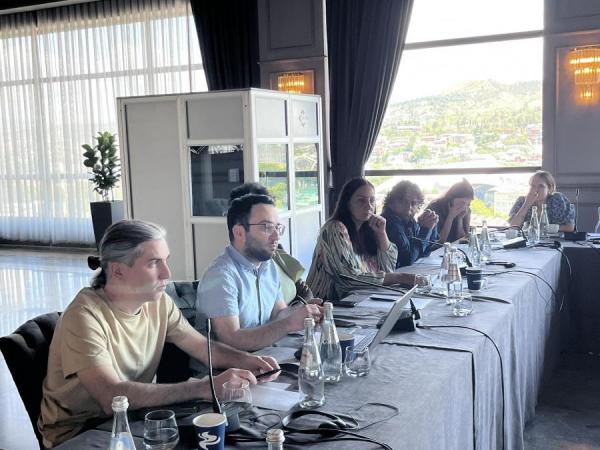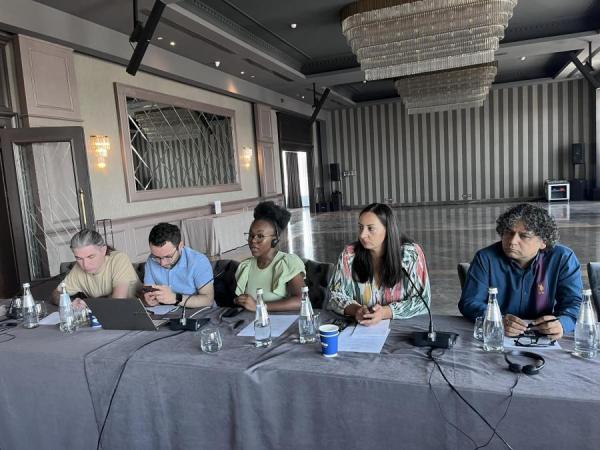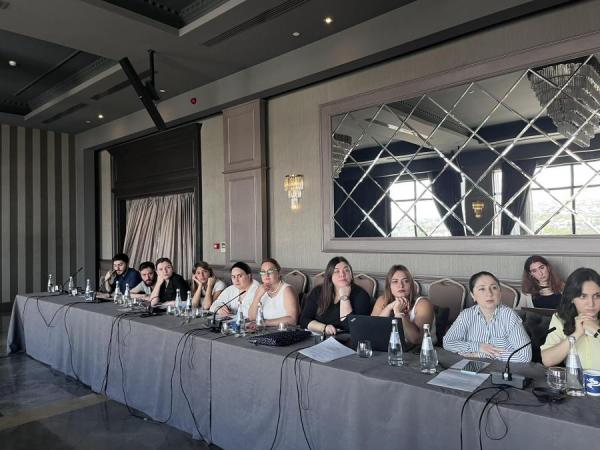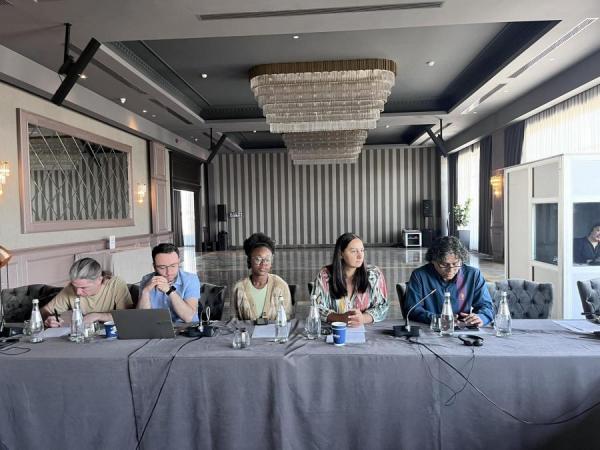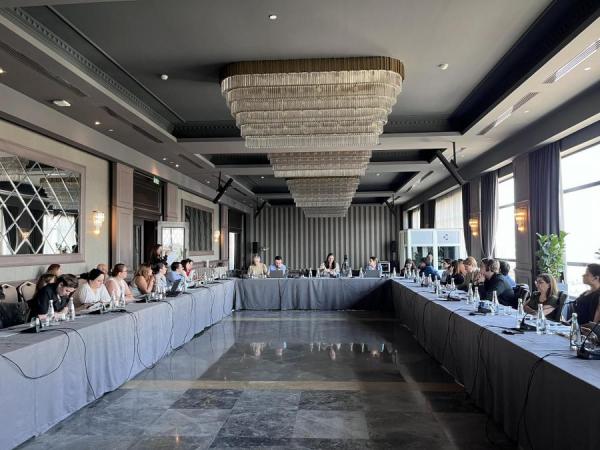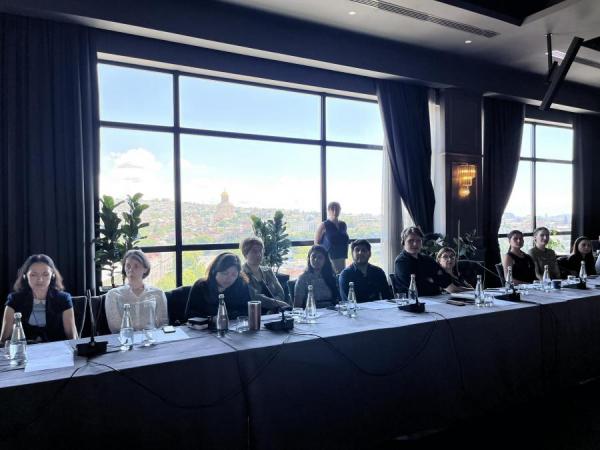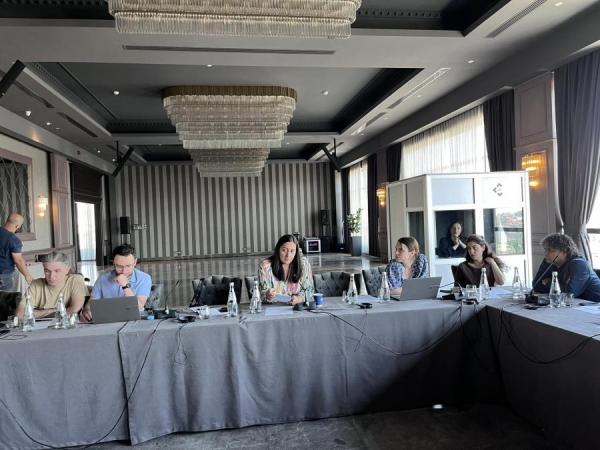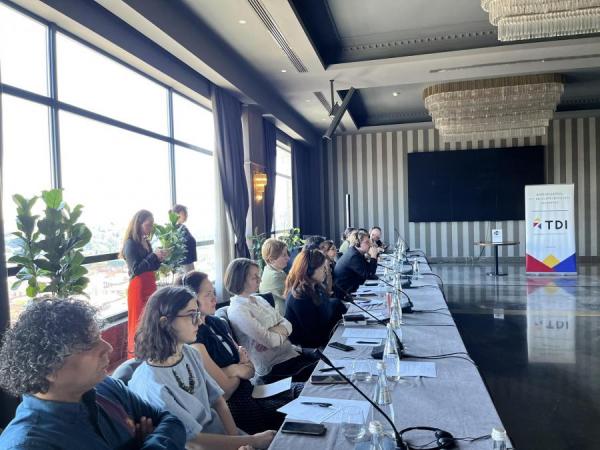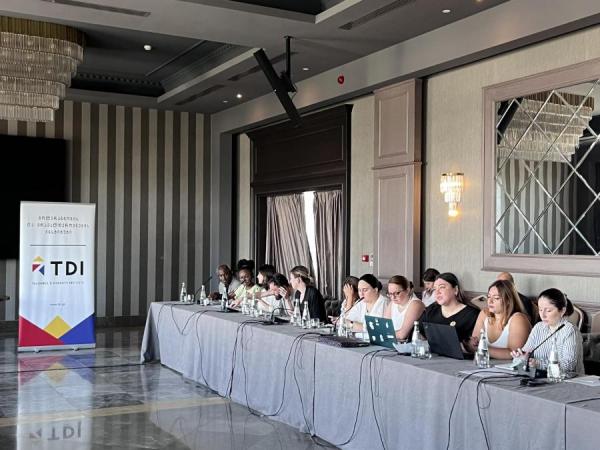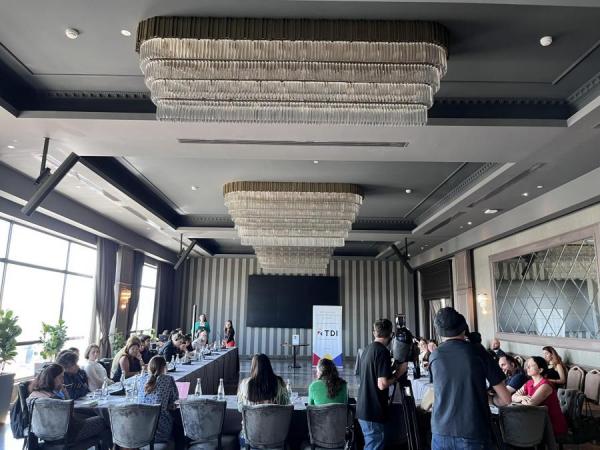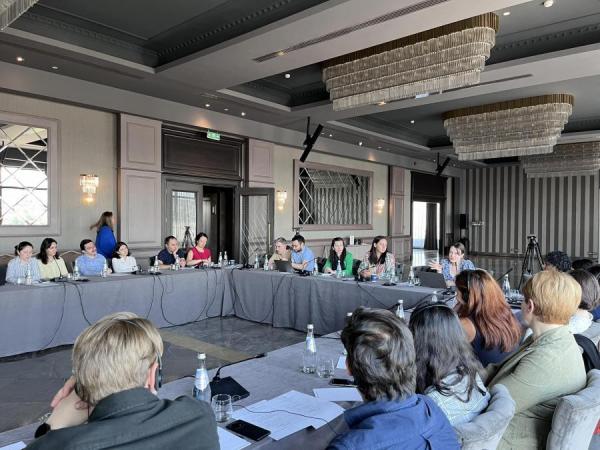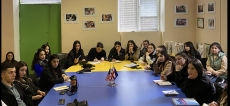
Legal Status of Foreigners and Racism in Georgia
Roundtable Discussion and 2022 Report Presentation
On July 18, the Tolerance and Diversity Institute (TDI), with the support of the USAID Rule of Law Program, held a roundtable discussion and presentation of the report - Legal Status of Foreigners and Racism in Georgia for 2022. The representatives of local, international, and community organizations, diplomatic corp, state agencies, and political parties attended the meeting.
The first session of the meeting was dedicated to the discussion on the government’s migration policy and the needs of the Ukrainians in Georgia. The problem of racism in Georgia was discussed during the second session.
TDI’s special report Legal Status of Foreigners and Racism in Georgia 2022, was published the same day.
TDI’s Strategic Litigation and Advocacy Program Director Mariam Gavtadze reviewed the meeting topics and main subjects of TDI’s special report: “One of the most important factors impacting upon the legal status of foreigners in Georgia in 2022 is the full-scale war that Russia started against Ukraine, which caused an increased flow of migrants to Georgia from the mentioned countries, especially from the Russian Federation. In this context, the state’s policy regarding the entry of foreign citizens into Georgia and their use of various state services is particularly interesting. In light of Russia's full-scale war against Ukraine, the legal situation and the needs of refugees from Ukraine became particularly relevant in Georgia, which is also described in the report. Additionally, the legal status of migrants, especially from African and Asian countries, remains one of TDI’s priority areas. People from African and Asian countries residing in Georgia still speak about the differential treatment they receive in public and private spaces. The unjustified policy of denying the residence permit to specific countries' representatives remains a challenge”.
During the first session of the meeting, TDI’s director Eka Chitanava reviewed the needs of Ukrainians who arrived in Georgia after the start of the war, the most acute of which are access to healthcare, employment (and related household needs), housing, access to education, integration of Ukrainian children in the educational institutions, etc.
Ekaterine Megrelishvili, Project Coordinator at the Center for Participation and Development, spoke about the several aspects of Ukrainian refugees' conditions who arrived in Georgia after the start of the war. Ms. Megrelishvili noted that despite the state having taken separate measures to help Ukrainians, the government does not have a unified, established strategy to meet the needs of refugees. She also spoke about the shortcomings of the state medical assistance program for refugees, which unjustifiably restricts the possibility of receiving medical services for refugees. For example, the refugees who were not included in the state assistance program from March to July 2022 cannot use the state health services if they did not live permanently in Georgia during this period. Ekaterine Megrelishvili also emphasized the importance of the self-organized assistance provided to Ukrainian refugees by volunteer organizations in Georgia.
The representative of the United Nations High Commissioner for Refugees, Nino Kvirkvelia, the representative of the political movement Droa, Nino Dolidze, and the representative of the Human Rights Development Foundation, Salome Mezurnishvili, also spoke of the same problems. According to their assessment, one of the most visible shortcomings of the state programs to help Ukrainian refugees is the unjustified restrictions on receiving medical services. Salome Mezurnishvili additionally noted that if a person has a humanitarian status, they no longer receive financial assistance. The representative of Droa, Nino Dolidze, also spoke about the difficult situation in which Ukrainian refugees found themselves in August 2022, when the government closed the state housing program.
In the first part of the meeting, the discussion also included the obstacles created for Russian citizens who are critical of the Russian government and for the citizens of North Caucasian Russia when crossing the border, which may indicate the government's selective policy.
The second part of the meeting was devoted to the problem of racial discrimination in Georgia and state policy towards migrants. Darpan Prasher, Chairman of the non-governmental organization Cultural Diversity for a Peaceful Future, spoke about the challenges faced by Indian citizens in Georgia, especially by Indian students. Dami Odetayo, a representative of the Redeemed Christian Church of God, overviewed the problems of Nigerians living in Georgia. TDI lawyers Saba Sutidze and Shota Tutberidze spoke about the problems related to border crossing, issuance of residence permits, as well as other cases of racial discrimination.
According to the speakers, people from African and Asian countries face the problem of racial profiling, firstly at the border of Georgia, when they experience discriminatory and humiliating treatment by border control officials. One of the main issues is still the unjustified refusal to issue a residence permit or the termination of the existing one. The investigations on the violations of migrants' rights are often ineffective. Due to many obstacles created by the government, migrants have less and less trust in the police and other state institutions, which makes their human rights and legal conditions even more difficult.
